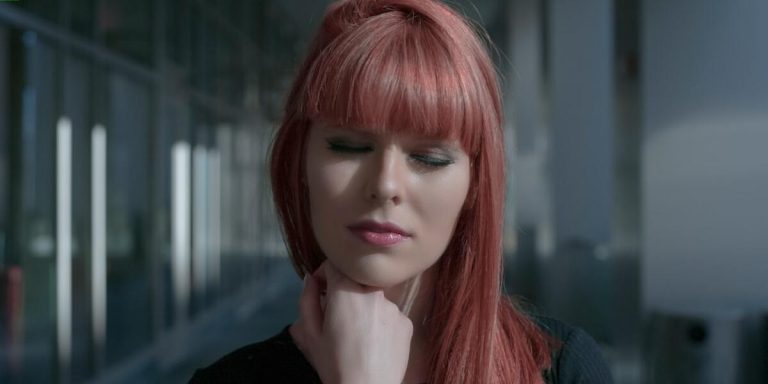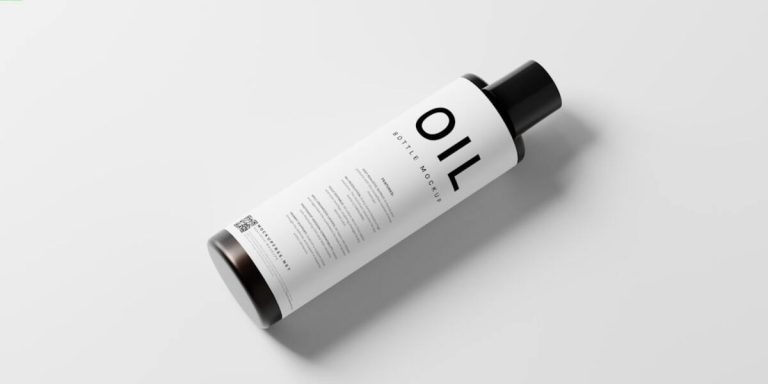PCOS Hair Loss Regrowth Success: A Guide to Overcoming the Challenge
Hair loss can often be a distressing side effect of PCOS (polycystic ovary syndrome). However, the journey towards “pcos hair loss regrowth success” doesn’t have to be an arduous one. Understanding how this condition impacts your body and taking appropriate steps can help you overcome this challenge effectively.
This post aims to guide you through that process with practical strategies for combating hair loss caused by PCOS. We will delve into scientific explanations behind the symptom, while highlighting proven methods that aid in encouraging healthy hair growth. Armed with knowledge and determination, overcoming PCOS-induced hair loss is definitely within reach.
Did you know?
Despite the general notion, hair regrowth in Polycystic Ovary Syndrome (PCOS) loss is possible. Researchers have found that a balanced diet supplemented with specific vitamins and minerals can significantly aid PCOS-related hair regrowth.
Understanding PCOS-Related Hair Loss
Polycystic ovary syndrome, commonly known as PCOS is one of the prevalent conditions leading to hormonal imbalance in women. One noticeable symptom associated with it often reported by most patients is hair loss. Understanding how PCOS triggers this hair thinning can shed light on strategies and measures for combating this issue.
Excess production of male hormones, or androgens, due to PCOS disrupts normal follicular growth patterns. This disruption leads to ‘androgenic alopecia‘, a form that closely resembles male pattern baldness. Poor insulin sensitivity causes an excessive insulin release, which then enhances ovarian cells’ function and leads them to overproduce these harmful substances. This overproduction manifests as unwanted facial hair and significant thinning at the scalp level.
The Connection Between PCOS and Alopecia
Polycystic Ovary Syndrome (PCOS) is a common hormonal disorder that affects numerous women worldwide. One of the less popular yet deeply concerning manifestations of this syndrome can be alopecia or abnormal hair loss.
While every individual loses some strands daily, it becomes alarming when you start to notice empty patches on your scalp. This might indicate an onset of PCOS-related alopecia – where the imbalance in hormones can lead to extensive hair thinning and eventual baldness.
In case of Polycystic ovary syndrome, there’s usually an excess production of male hormones – Androgens, which are present in small amounts even in females. But when they surge beyond normal levels owing to PCOS, these hormones interfere with several biological processes including hair growth cycle leading to ‘pcos hair loss regrowth success’.
What Happens When You Have Excess Male Hormone?
When your body starts producing higher than usual amounts of androgens due to PCOS , the life cycle for each strand reduces significantly causing them fall out more rapidly while replacement hairs grows much slower than before resulting into visible thinning over time.
As part this pattern shift induced by high levels testosterone presence , new often tend weaker fragile compared lost ones because increasing sensitivity follicles hormone . Eventually miniaturizing stopping altogether creating vacant spots known diseases like .
Hormonal Imbalance and Its Impact on Hair Health
While we often refer to hair as our crowning glory, it’s crucial that we take into account the fundamental role hormones play in its health. Notably, a condition such as Polycystic Ovary Syndrome (PCOS) can result in significant hormonal imbalance with unfortunate consequences for your locks.
When PCOS strikes, an overproduction of androgens – male sex hormones – occurs. This leads not only to acne and weight gain but also instigates thinning of hair on the scalp or even complete loss. Given this scenario is quite common amongst women dealing with PCOS; many are searching for “pcos hair loss regrowth success”.
So how does this hormonal imbalance impact your chances at successful regrowth? Simply put, excess androgens could shorten the growth cycle of hair follicles leading them to shed prematurely. The effect: fewer strands growing back after shedding which results in thinner-looking scalp coverage.
The flip side is where hope lies though! Since hormone-induced hair loss isn’t permanent like other forms of alopecia, there are substantial possibilities for recovery provided that underlying imbalances get rectified through lifestyle modifications or appropriate medical interventions.
Ensuring adequate intake of nutrient-rich foods capable of promoting healthy hormone levels should be one’s first step towards pcops-based “hair loss regrowth” success story within 2023 context.
Strategies for Managing PCOS Hair Loss
Dealing with PCOS hair loss can be stressful, but there are effective strategies to manage this condition and support healthy regrowth. The key lies in understanding the root cause which is usually due to hormonal imbalance. This discrepancy prompts an overproduction of male hormones, leading to thinning or patchy hair growth patterns.
Treatment varies from person-to-person based on their unique biological response; however, maintaining a balanced diet coupled with regular exercise has proven beneficial for many sufferers of PCOS-induced hair loss. By incorporating nutrient-rich foods that regulate insulin and lower inflammation levels inside your body, you’re attacking the problem at its source.
Explore topical applications as a strategy for managing PCOS-related hair issues. Use products containing Minoxidil to stimulate follicles and promote new growth cycles, while also increasing blood flow for better nutrient delivery to the scalp. Consider holistic approaches like acupuncture and essential oil therapy, which support healthier lifestyles and help in regrowth of hair lost due to PCOS.
Remember: It’s crucial not only for physical well-being but also mental health that any chosen treatment strategy should work positively alongside daily routines without causing unnecessary stress or discomfort.
Effective Dietary Changes for Hormone Regulation
In the quest for pcos hair loss regrowth success, dietary modifications play a critical role. Hormones regulate numerous functions in our body and when they go awry due to conditions like PCOS, it directly impacts areas such as hair growth.
Secondarily is cutting down on processed food intake that are high in unhealthy carbohydrates or saturated fat like fast foods or sugary beverages because these contribute immensely towards causing hormonal imbalance thus exacerbating problems of hair loss linked with PCOS.
Medical Treatments That Promote Hair Regrowth
Firstly, considering an oral medication like Spironolactone can prove beneficial. It works by inhibiting the production of male hormones (androgens) that are often overactive in those suffering from PCOS and consequent hair thinning or balding.
Next on this list is Minoxidil – a topical application widely acknowledged for its role in fostering healthy and quick hair growth by enhancing blood flow to the follicles. Despite being available without prescription, it’s still best employed under professional guidance.
Another possible treatment route encompasses certain birth control pills specifically formulated to combat hormonal imbalances leading to excessive body or facial growth alongside scalp-hair shedding.
Lastly but importantly, there’s Finasteride – another oral drug primarily seen as effective against male pattern baldness yet showing promise towards stimulating pcos hair loss regrowth too particularly when combined intelligently with other drugs such as Spironolactone or Minoxidil based on thorough case assessment.
Note: While all these options bear potential side-effects ranging mild-to-moderate severity-wise hence warrant careful usage under expert supervision only; they’ve largely been successful at reigning over sufferers’ distress encircling persistent alopecia once induced by frustratingly stubborn PCOS symptoms until now throughout 2023 thus far.
Success Stories: Overcoming PCOS-Induced Hair Loss
Taking control of Polycystic Ovary Syndrome (PCOS) and its symptoms is no small feat, especially when dealing with the impact it has on your hair. However, hope should never be lost as numerous women have embarked on successful journeys overcoming PCOS-induced hair loss to regain their lustrous locks. The year 2023 stands witness to many uplifting stories that serve as a testament to the fact that hair regrowth in cases of PCOS is indeed possible.
People with PCOS often have to deal with conditions like hirsutism or thinning scalp hair due to hormonal imbalances, which:
- Are mainly caused by high levels of androgens, or male hormones.
- Can lead to erratic menstrual cycles.
- May accelerate ‘androgenetic‘ alopecia, causing significant distress.
However, targeted treatment protocols aimed at restoring balance can lead to true change and have shown significant success rates around the world.
Achieve hormone regulation through dietary changes by eating low-glycemic-load foods like fruits, vegetables, and lean proteins. Engage in exercise routines to manage body weight and integrate stress-relieving therapies to improve overall lifestyle quality. These elements help create an environment that stimulates follicular rejuvenation, leading to regained hair density and volume after PCOS-related hair loss.
Personal Journeys with Natural Remedies
The route to triumphant victory against PCOS-induced hair loss often involves a personal journey brimming with trials, experiments and astounding breakthroughs. Let’s delve deeper into captivating tales of individuals who found solace in natural remedies and achieved pcos hair loss regrowth success.
Then there’s Michelle whose faithfulness towards apple cider vinegar rinses bore fruit While already acknowledged for improving scalp health it also balances pH levels thus optimizing environments conducive Today Michelle prides herself over regained density from root tips.
Triumphs with Medication and Lifestyle Adjustments
Many women grappling with PCOS-induced hair loss have triumphed over this challenge through a combination of medication and lifestyle adjustments. In their journey towards pcos hair loss regrowth success, these strategies played a significant role.
Firstly, prescription medications were instrumental in many success stories. Medicines like Spironolactone and Finasteride found favor due to their effectiveness in blocking the production of certain hormones that cause hair thinning. Similarly, Minoxidil earned applause for its capability to stimulate new growth by increasing blood flow around follicles.
However, it’s important to highlight that medicine alone didn’t bring about complete transformation; most individuals also tweaked their lifestyles significantly along the way. A balanced diet is one such adjustment they made because consuming nutrient-dense foods can nourish follicles from within leading to healthier strands capable of resisting breakage or damage more effectively than weak ones.
Another common change was stress management since excessive tension could intensify hormone imbalances linked with both PCOS and consequent shedding problems. As part of handling pressure efficiently, various relaxation methods like yoga or meditation became inherent parts alongside regular exercise routines for some ladies on the path toward pcos hair loss regrowth success.
Conclusion
In conclusion, PCOS hair loss regrowth success is certainly achievable. However, it’s not always a path of roses; it requires consistent effort and confidence that even under challenging circumstances you can bring back the crown glory to its bloom.
Remember, there are numerous other resources and tips available on our website related to hair regrowth which could be of great help for your journey. We encourage every reader to continue browsing through our site’s carefully curated array of articles and information so you can make more informed decisions about restoring your luscious locks back to health!







